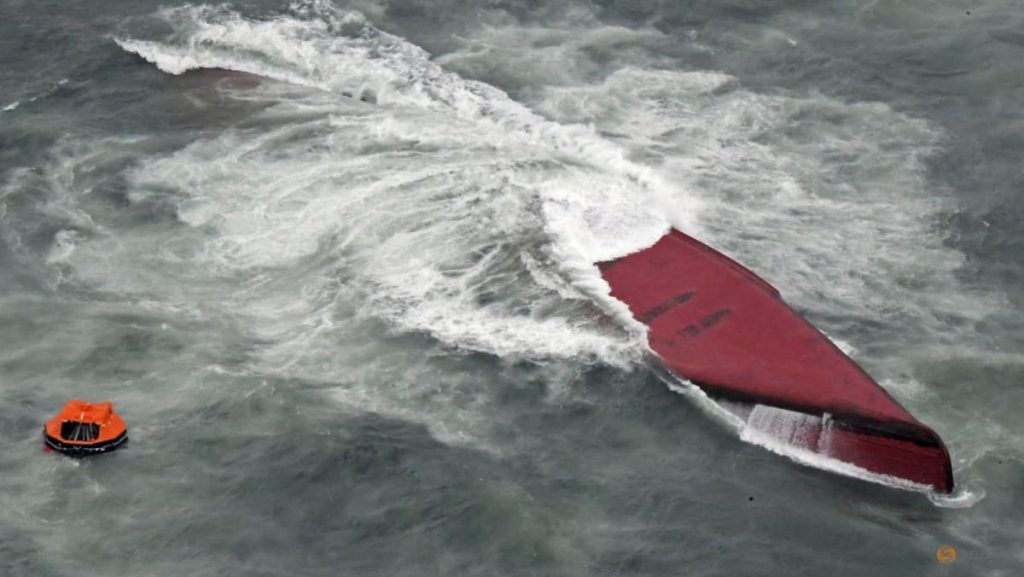ondition. The Japanese coast guard had said they were all rescued earlier in the day when the 998-tonne Panamanian-registered tanker Choyer sank in the Pacific Ocean off the coast of Japan’s Aichi prefecture, some 235 kilometres west of Amami Oshima island.
The incident occurred at around 9:40 am local time when the tanker was en route to South Korea from a Japanese port. The cause of the capsize is still unknown and an investigation is underway. The coast guard dispatched patrol boats and aircraft to the scene to search for survivors and to monitor any potential environmental impact from the incident.
The tragedy highlights the dangers faced by those working at sea and the importance of safety measures to prevent accidents. Incidents like this serve as a reminder of the risks involved in the maritime industry and the need for stringent regulations and safety protocols to protect the lives of crew members and prevent environmental damage from incidents like this.
The tanker was reportedly carrying a cargo of 1,300 tonnes of methanol, a highly flammable liquid that poses a significant risk in the event of a spill or leak. The potential environmental impact of the capsized tanker is a major concern, with authorities working to contain any leakage and mitigate the damage to the marine ecosystem.
The incident has raised questions about the safety standards and regulations governing the maritime industry, as well as the training and preparedness of crew members to respond to emergencies at sea. Ensuring the safety of crew members and the protection of the marine environment should be a top priority for all involved in the shipping industry.
In conclusion, the capsizing of the South Korean-flagged tanker off Japan resulting in the loss of eight lives serves as a tragic reminder of the dangers faced by those working at sea and the importance of robust safety measures and regulations in the maritime industry. The incident highlights the need for continued efforts to enhance safety standards, provide proper training for crew members, and protect the marine environment from potential environmental damage. Swift action and cooperation between authorities are crucial in responding to such emergencies and preventing further loss of life and environmental impact.


